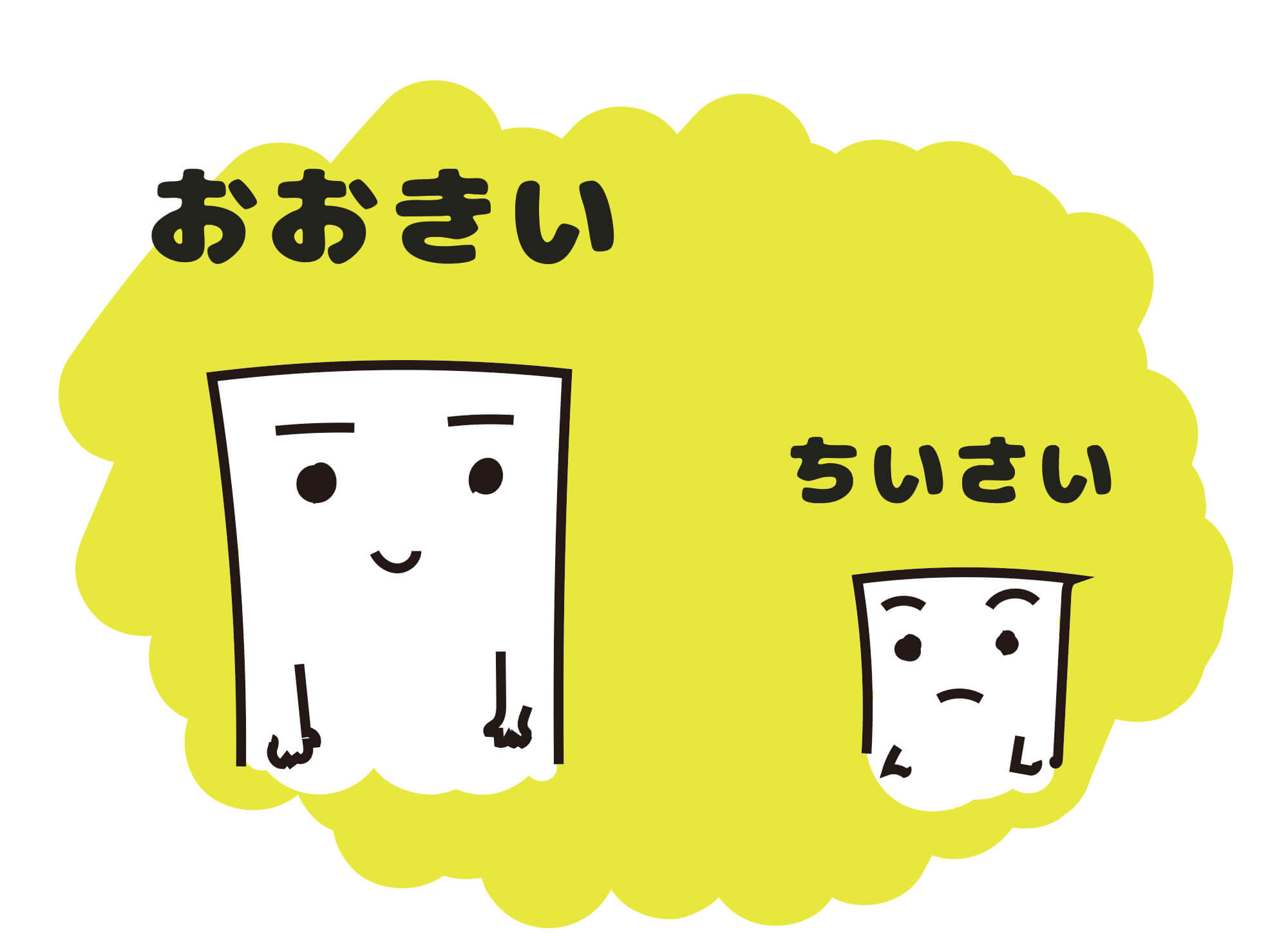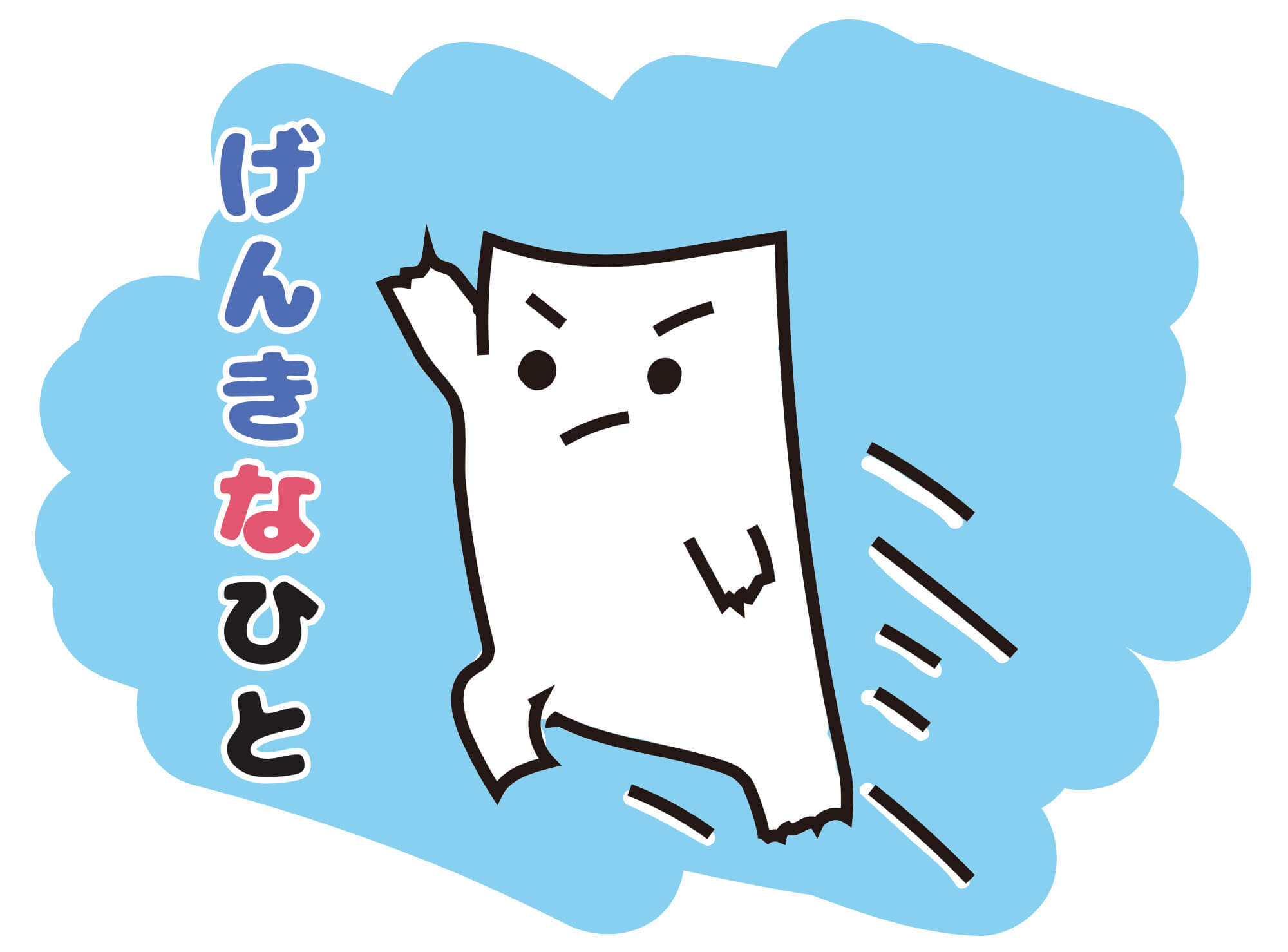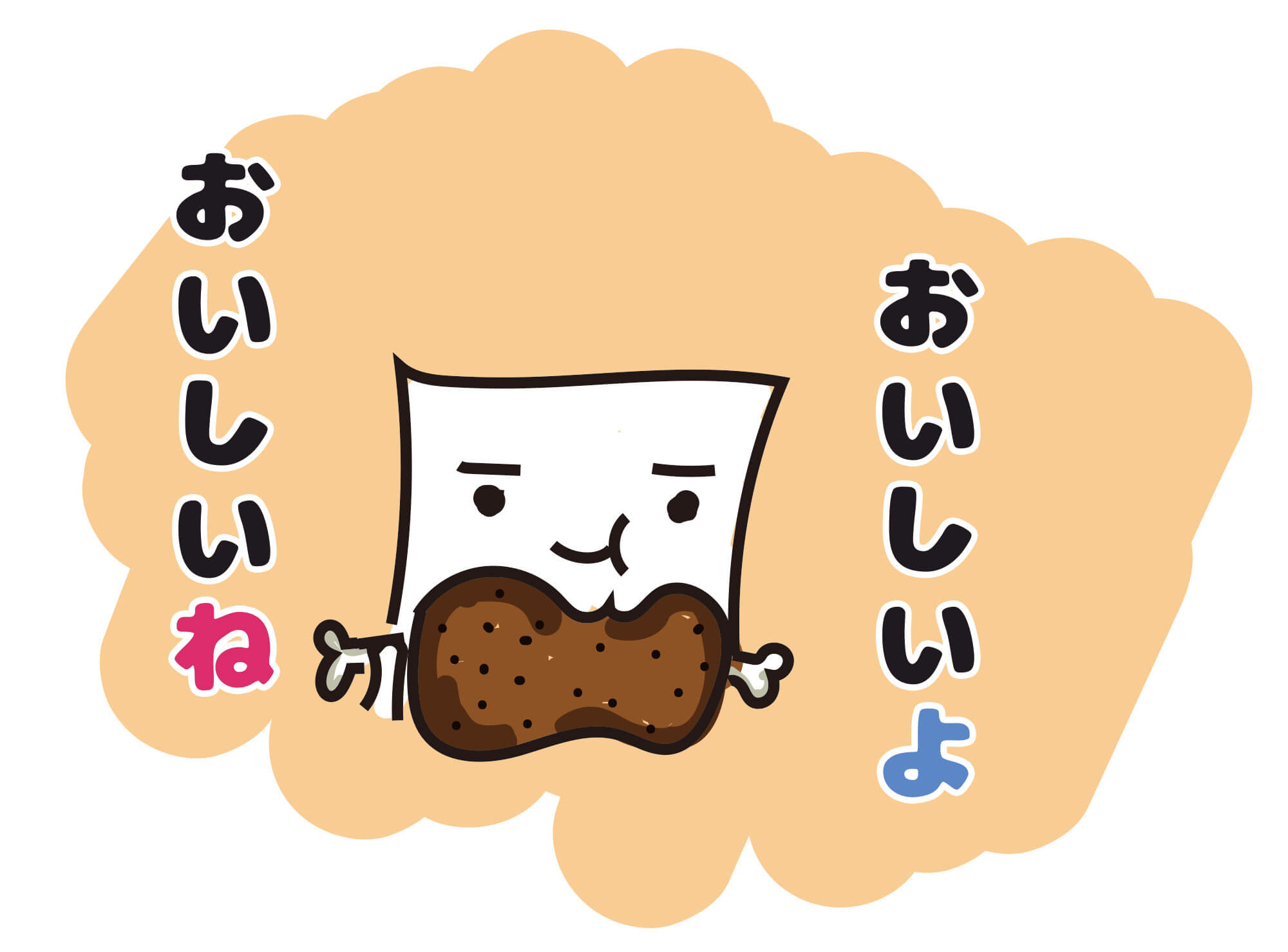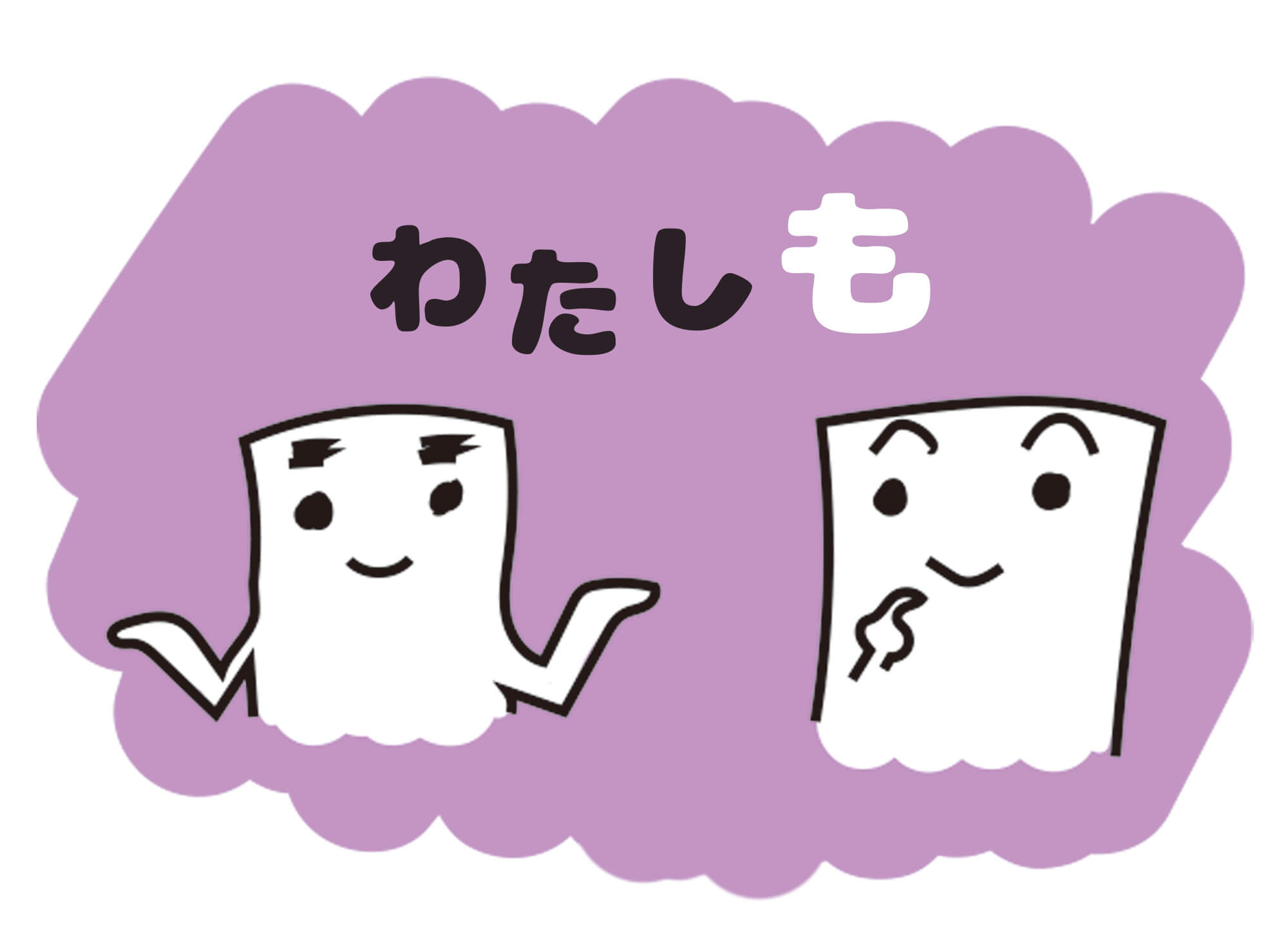い-adjectives
In Japanese there are two types of adjectives (い-adjectives and な-adjectives). い adjectives end in ai, ii, ui or oi.
| small | big | hot | interesting |
| ちいさい | おおきい | あつい | おもしろい |
い-adjectives conjugate in a different way than な-adjectives and nouns.
Affirmative form, present
おおきいです。It is big.
あついです。 It is hot.
おもしろいです。 It is interesting.
These are used in a polite way because です which indicates polite speech is placed after the adjectives.
Concerning the affirmative form in present, い-adjectives, な-adjectives and nouns conjugate in the same way.
Negative form, present
The final い is replaced with く and ありません is added to make the present tense in the negative form.
ちいさい → ちいさくありません (The final い is replaced with く)
おおきくありません。 It is not big.
あつくありません。 It is not hot.
おもしろくありません。 It is not interesting.
Affirmative form, past
The final い is replaced with かった which expresses the past.
ちいさい → ちいさかった ちいさかった → ちいさかったです
As かった doesn’t indicate polite speech, です is added to express politeness.
おおきかったです。 It was big.
あつかったです。 It was hot.
おもしろかったです。 It was interesting.
Negative form, past
The final い is replaced with く and ありませんでした is added to make the past tense in the negative form.
ちいさくありません → ちいさくありませんでした
おおきくありませんでした。 It was not big.
あつくありませんでした。 It was not hot.
おもしろくありませんでした。 It was not interesting.






